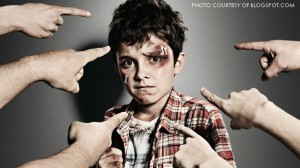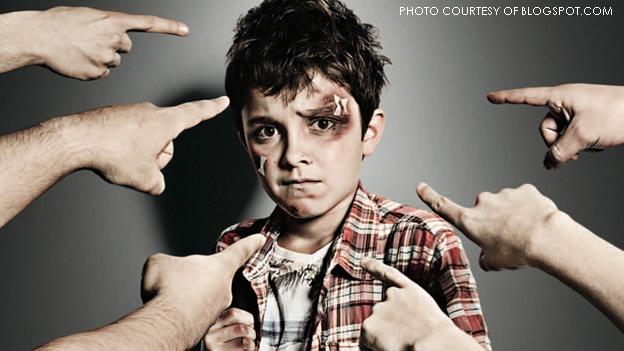
What exactly causes bullies to prey on their victims and victims to allow the abuse to occur?
According to “Big Bad Bully”, an article by Psychologytoday.com, the answer lies between the scientific and psychological effects resulting from negative personal and environmental circumstances.
Dr. David Perry, a professor of psychology at Florida Atlantic University, asserts that are two types of bullies.
There are the “classic playground bullies” who do not require situations involving conflict “to set them off”, and the “reactive bullies” who prolong and escalate conflict into aggression regardless of who begins a fight. The former bully begins a confrontation in order to gain something, whether it be social status or lunch money, while the latter is typically less emotionally stable and argues for the sake of social validation.
Encountering both types of bullies as a child without any social awareness of style, class, racial or sexual identities, it was difficult to find an escape from the “classic” bullies throughout my elementary school years. From personal experience, these bullies prefered the tactic of blatant social alienation, something which frustrated 11-year-old me, not because they were trying to assert power, but why?
Once entering middle school, the answer was abundantly clear; while my mind-set was as naive as a child’s, my body was several years ahead, in the thick of puberty. No longer would big sweaters, uncombed hair or neon-purple sweatpants be acceptable because it was a social expectation to appear cool in order to avoid the randomly predatory “classic bullies”.
However, upon reflection seven years later, I realize the only reason this type of bully bothered me at all is because I also dealt with the “reactive bully” in the form of a mean older brother at home. D, (I will call my brother D) was never particularly popular either, as he was larger than his peers and possessed a rather rotten attitude. At the time, it never seemed to occur to me that the various insults he used to psychologically harm me were a projection of his own insecurities from those who bullied him.
Now, I am able to identify the correlation between his hardships and outward projection in the form of argument and demeaning insults as a desperate cry for help. The dynamics of relationships followed as such; big brother gets in trouble at school, younger sister must endure these antics and self-destructive tendencies and even younger sister was upset but unable to understand why these dynamics existed.
As Dr. Perry explains, conditions such as these are conducive to form the toxic bully-victim relationship. As the middle child, I held the burden to not “antagonize” or fight back and “cause tension” because my parents believed it would create more peace within the family. For many years, I blamed his attacks on myself and would try not to provoke the person who spouted the insults I internalized as character flaws.
However, this unhealthy expectation could not have feasibly lasted in a family with five big personalities. D held the power to psychologically attack whenever, but as I grew older, I refused to let him victimize me.
In the summer of my eighth grade year, I broke my silence. It was sometime around midnight, and D and I were watching cartoons when I began talking excitedly about my dreams of being a writer. He responded with a cold put down, and I snapped; years of emotional turmoil resurfaced as D finally had to face the damage he created in me.
The next day, he bought me a moleskine notebook as an apology.
It was then that it dawned on me how to stop the cyclical and unhealthy bullying relationship, call them out on it. By it, I mean all of it, explain honestly what the pain resulting from every single verbal jab feels like. If the bully is physical, show every scar, and give a detailed explanation of how it feels to lug around the weight of those physical or emotional scars.
If the bully is “reactionary”, then it will arouse a sense of empathy because they will then be able to see a reflection of themselves in their victims. The “classic” bully is also likely to stop because their targets are no longer good targets if they stand up for themselves.
However difficult it may be to view a bully, it is important to keep in mind that they are also human. Yes, some humans are horrible and bully others, but it is wrong to deny them the empathy and respect they deny victims because that behavior perpetuates the cycle of bullying. From personal experience, the longer one holds on to these personal injustices, the more difficult it is to be self-empowered.
To walk away from harmful situations or people with an understanding of them is key in the process of healing from long-term bully-victim relationships.

Leave a Reply